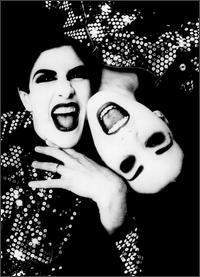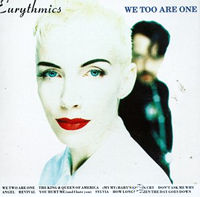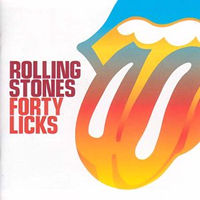Jason Maloney reviews
V o l u m e # 3 2 Chart Date: 9th September 1989 Online Date: 9th September 2004

The Collection
As a result, Sowing The Seeds Of Love – the much anitcipated return of Tears For Fears after a four year absence – had to settle for a #6 peak. The single, a kitchen-sink pastiche of Beatles-esque psychedelia, had debuted strongly at #9 a week earlier, but it would be the only one of four singles from the accompanying Seeds Of Love album to even crack the Top 20.
Tears For Fears had been one of the most successful chart acts of the early-to-mid 1980s, but the rest of the Top 20 from 15 years ago consisted of primarily new names on the scene. The sadly short-lived careers of Betty Boo and Martika were just beginning; Boo’s guest appearance on the Beatmaster‘s Hey DJ (still at #7) made her name, while Martika’s US #1 Toy Soldiers was the first in a brief run of hits that lasted until early 1992. Meanwhile, Alyson Williams and the rather scary Adeva were crossing over from clubland to the main chart with I Need Your Lovin’ (up to #11) and Warning (down from #17 to #19).

Shakespear’s Sister
The big summer movie was Tim Burton’s bold take on the Batman comics starring Michael Keaton as the caped crusader and Jack Nicholson as his meglomaniacal nemesis The Joker. Soundtrack duties were performed by none other than Prince, but Party Man (new at #20) was one of the few Prince tracks from his Batman album to actually feature in the film. Perhaps because most of the tracks weren’t really up to much. Batdance had somehow reached #2 in May on the back of the publicity surrounding the film, but Party Man – despite being superior – only made #14 in the end.
Shakespear’s Sister, the new project for ex-Bananarama girl Siobhan Fahey, were now falling out of the Top 20 down to #21 with their debut hit You’re History, but – eventually, give or take the odd flop or three – they would be back for even greater success. For all-American 80s teenpop queen Debbie Gibson, We Could Be Together (up 5 to #22) would prove her final brush with the British Top 40 as a solo artist; there was just the matter of a duet with Craig McLachlan to come in the mid-90s thanks to the stage production of Grease – The Musical.

We Too Are One
Janet Jackson had been no stranger to the UK Top 10 during 1986 and 1987 with three of her singles from her Control album reaching the upper echelon. Strangely, however, not one of the seven releases taken from the 1989 follow-up Rhythm Nation 1814 managed to progress higher than #15 but all of them made the Top 30; a sequence unlikely to ever be repeated, not least because the era of so many singles from one album has long since passed. Miss You Much, Rhythm Nation’s introductory hit, was starting its modest ascent to #22 with a 5 place rise from #30.
Eurythmics were also languishing mid-chart with their latest effort Revival, up 4 to #26. Again, the chart performance of all the singles from its parent album (in their case, the #1 We Too Are One) were consistently underwhelming; the other three would reach #25, #29 and #23 to leave We Too Are One with the dubious honour of being the first Eurythmics album not to produce a UK Top 10 single since 1981’s debut In The Garden.

Forty Licks
A trio of future US Billboard Top 5 hits also arrived in the 30s; The Cure‘s Love Song (in at #33) fared much better across the water, where it went all the way to #2, while Aerosmith‘s raunchy anthem Love In An Elevator entered close to the chart’s ground floor but ultimately rose as high as #13. Finally, debuting at #39, The Rolling Stones rolled on, announcing their comeback after 3 years of bitching and so-so solo projects with the lauded Steel Wheels album, from whence came Mixed Emotions. The album sold more than respectably; the single peaked at a disappointing #36.
Page Content copyright © Jason Maloney, 2004.
Reviewer of movies, videogames and music since 1994. Aortic valve operation survivor from the same year. Running DVDfever.co.uk since 2000. Nobel Peace Prize winner 2021.
